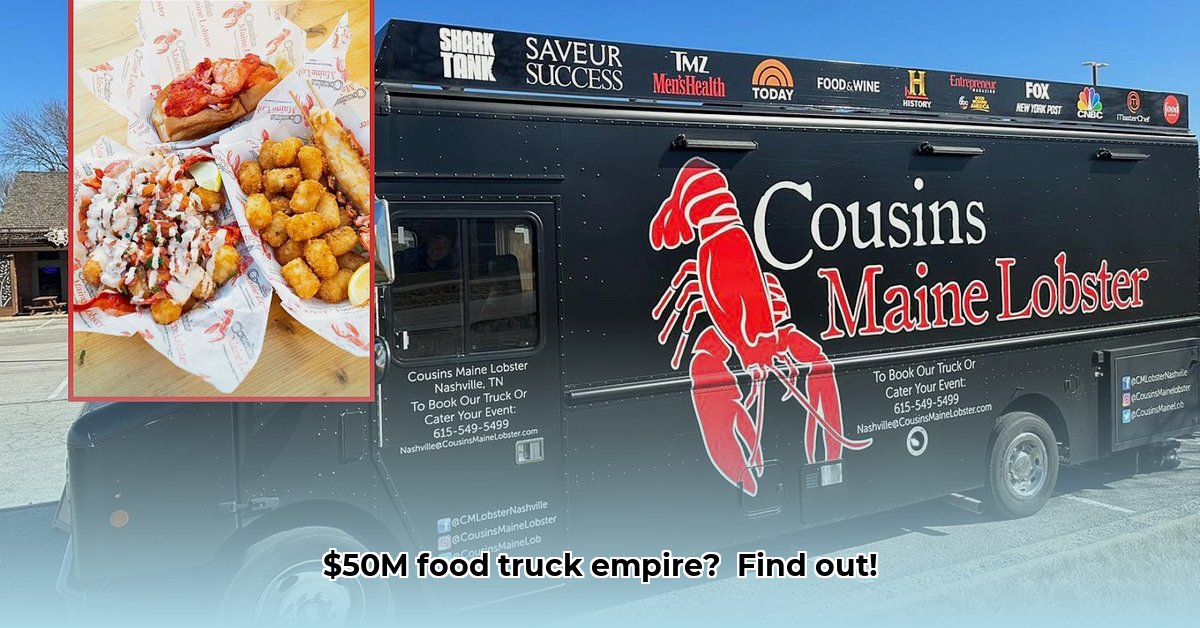
Cousins Maine Lobster: A Tale of Two Net Worths
Cousins Maine Lobster (CML), the bright red food truck franchise synonymous with delicious lobster rolls, has achieved remarkable success since its Shark Tank appearance. This success, however, is shadowed by a significant discrepancy in reported net worth figures. While some sources claim a valuation exceeding $50 million, others suggest a considerably lower figure, closer to $10 million. This article investigates the factors contributing to this disparity and explores the challenges in accurately assessing the net worth of a privately held food truck franchise.
The CML Success Story: From Family Recipe to Franchise Empire
Cousins Jim Tselikis and Sabin Lomac transformed a simple family recipe into a national brand. Their appearance on Shark Tank provided crucial exposure, accelerating their growth. CML's strategic franchise model enabled rapid expansion across the country, capitalizing on the high demand for their premium lobster rolls. The company’s success is undeniable, but its financial picture is less transparent.
Deconstructing the Net Worth Debate: Why the Discrepancy?
The wide range in reported net worth valuations ($10 million to $50 million+) stems from several intertwined factors. Firstly, CML, as a privately held company, is not obligated to publicly disclose its financial statements. This lack of transparency makes independent verification extremely difficult. Secondly, different valuation methodologies produce vastly different results. Analysts may emphasize future earnings potential while others focus on current assets, leading to significantly diverging figures. Finally, the significant impact of intangible assets like brand recognition and customer loyalty remains difficult to quantify precisely. How do you put a price on brand equity?
Did you know that annual revenue estimations for Cousins Maine Lobster range wildly? This highlights the challenge in pinpointing the true net worth of a privately held company like CML.
Analyzing the Revenue Streams and Challenges
CML's revenue streams primarily include franchise fees, royalties from individual franchisees, and direct sales from company-owned trucks and potentially restaurants. To determine a net worth, one must meticulously account for all these revenue streams and subtract operating expenses. These expenses include costs of goods sold (lobster, other ingredients), labor costs, truck maintenance, marketing, and various administrative expenses. Without access to these detailed financial records, any valuation remains speculative. The higher estimates ($50 million+) appear to be based on optimistic projections of future growth, while lower figures likely reflect a more conservative assessment of current assets and earning potential.
The Intangible Asset: Brand Value and Future Prospects
The value of the CML brand is substantial. The Shark Tank effect, along with strong brand recognition and customer loyalty, represent intangible assets that are practically impossible to accurately quantify using conventional financial methods. This significant contribution to the overall valuation is often underestimated in lower net worth estimations. While financial transparency from CML would provide a clearer picture, the company's undeniable success is evident in its expansion and franchise model. However, challenges remain, including managing franchisee quality, adapting to fluctuating lobster prices, and maintaining operational efficiency across a growing network.
Conclusion: The Delicious Mystery Remains
The precise net worth of Cousins Maine Lobster remains an intriguing enigma. While the company’s story is one of remarkable success, a lack of transparency and the complexities of valuing intangible assets contribute to the vast disparity in reported figures. The $50 million figure, while capturing the potential of the brand, likely represents an optimistic projection, while lower estimates perhaps undervalue the considerable brand equity. Ultimately, CML's success is undeniable, but its true financial worth will likely remain a subject of speculation until more transparent financial information becomes available. This delicious mystery, however, doesn’t detract from the company’s impressive journey from a family recipe to a national food truck empire.